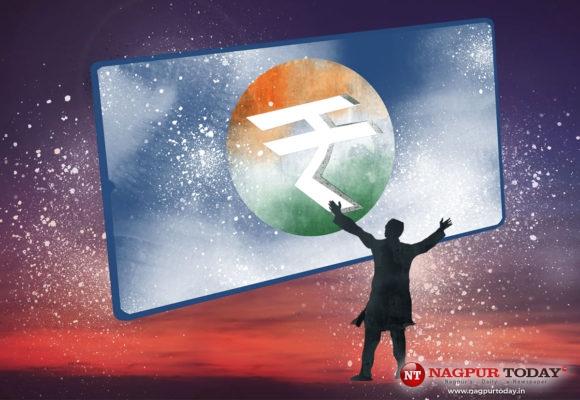
India’s first digital rupee pilot project will commence on Tuesday with nine banks, including SBI, HDFC Bank and ICICI Bank, issuing the virtual currency for transactions in government securities.
“…the first pilot in the digital rupee — wholesale segment shall commence on November 1, 2022,” the RBI said in a statement on ‘Operationalisation of Central Bank Digital Currency-Wholesale (e?-W) Pilot’.
It also announced that the first pilot in digital rupee — retail segment is planned for launch within a month in select locations in closed user groups comprising customers and merchants.
The use case for the pilot is settlement of secondary market transactions in government securities, the RBI said regarding the maiden project starting Tuesday.
“Use of e?-W is expected to make the inter-bank market more efficient,” it added.
Settlement in central bank money would reduce transaction costs by pre-empting the need for settlement guarantee infrastructure or for collateral to mitigate settlement risk.
Nine banks — State Bank of India, Bank of Baroda, Union Bank of India, HDFC Bank, ICICI Bank, Kotak Mahindra Bank, Yes Bank, IDFC First Bank and HSBC — have been identified for participation in the pilot project.
Going forward, other wholesale transactions and cross-border payments will be the focus of future pilots, based on the learnings from this pilot, the cental bank said.
What is e-rupee (digital rupee)?
E-rupee or digital rupee is a digital version of the Indian rupee that the RBI is exploring. The RBI has proposed to issue two versions – wholesale for interbank settlement and retail for the public. According to the indirect model proposed by the RBI, you will hold the digital rupee in a wallet with a bank or service provider.
Is it a cryptocurrency?
The underlying technology of cryptocurrency (distributed ledger) can underpin parts of the digital rupee system, but the RBI has not decided on this, yet. However cryptocurrencies like bitcoin or ethereum that are ‘private’ in nature. Digital rupee on the other hand, will be issued and controlled by the RBI.
Can you mine it?
No. RBI will issue it. It cannot be mined like bitcoin. This means that the environmental and energy use concerns associated with bitcoin are unlikely to be afflict the digital rupee.
Who will issue it?
RBI has proposed a model where it (the RBI) issues the e-rupee but commercial banks distribute it.
How do you transfer e-rupee?
The retail version of the digital rupee is token based. Broadly this means, you find out the recipient’s public key (think of it like an email address) and transfer money to them using your private key (essentially, a password).
Will it earn interest?
According to the RBI concept note, no. They are not in favour of e-rupee with interest. Why? Because people might withdraw money from banks and convert it to digital rupee – causing banks to fail
Will it be anonymous?
A bank transfer goes from an identified person to another. A cash transfer on the other hand is anonymous – you don’t know who all held that particular rupee note in the past. For e-rupee, the RBI concept note has proposed partial anonymity where small amounts can be anonymous but not large amounts.
Why should you hold it?
Convenience. Transacting in e-rupee can take away the inconvenience of carrying around physical notes and coins. Apart from this, the RBI has outlined some benefits for the country as a whole, such as financial inclusion, innovation and lowering the costs of cash transactions.
Can it be programmed?
Yes, possibly. It can be programmed to achieve purposes like ensuring it is only spent for a particular sector (say, agriculture). Alternatively, it can be given a limited life, like a voucher, allowing RBI to stimulate demand when needed and withdraw it when not needed. These features come with trade-offs and hence RBI has not finalised on them yet.
What if your net is down?
The RBI has proposed offline functionality for the digital rupee – meaning you can transact without the internet. However this can cause duplication where the same rupee transferred to multiple people. The RBI may issue limits for offline transactions to reduce such synchronisation issues or look for some technological solution to them.














